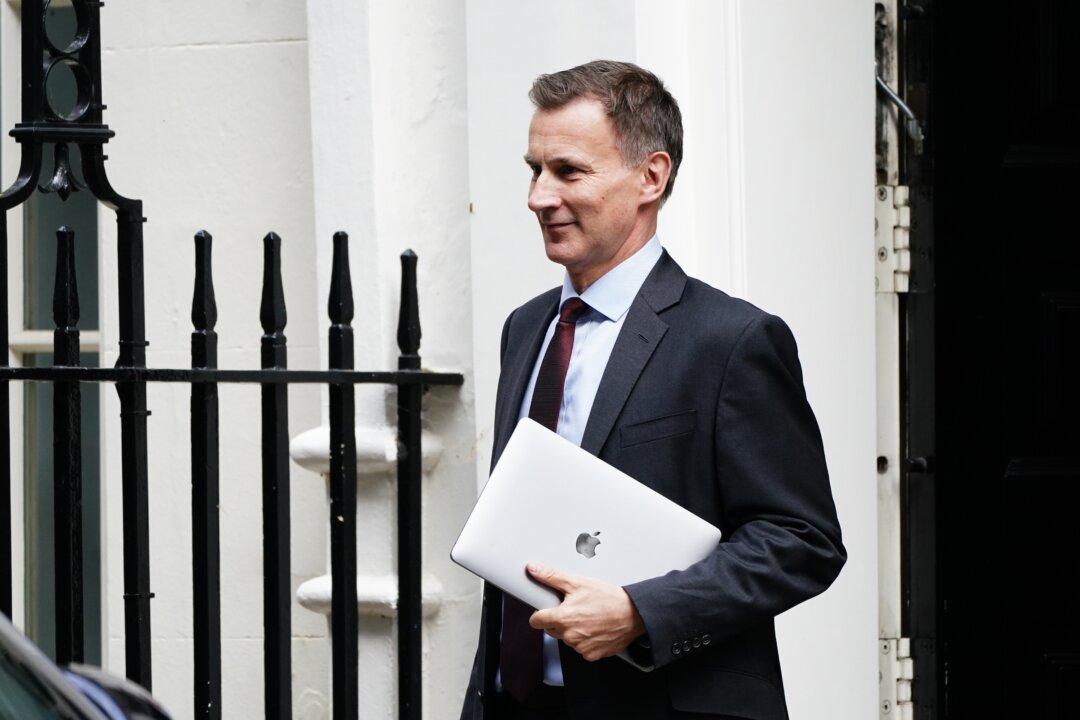Chancellor Jeremy Hunt said he will take the “path” to reducing the tax burden while remaining tight-lipped on whether any cuts will be included on Wednesday in the autumn budget.
Mr. Hunt declined to comment on media reports that he’s mulling a slash of inheritance tax but said he is “personally uncomfortable” with the tax burden, which is at 35.45 percent, the highest level in over 70 years.





